Proceedings of the National seminar “Impact of Dr. B. R. Ambedkar’s Philosophy on Indian Literature” held at the Acharya Nagarjuna University on March 28th and 29th 2018 (1)
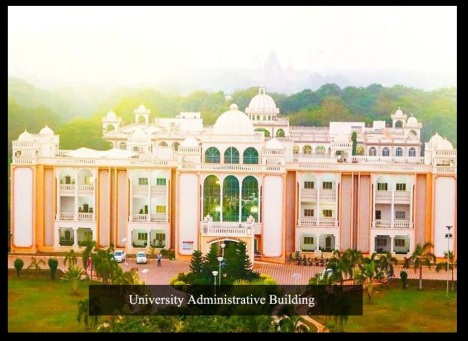
ANU – administrative building
Attending another seminar on Ambedkar quickly: As I got the information about the National Seminar on “Impact of Dr. B. R. Ambedkar’s Philosophy on Indian Literature” to be conducted by Acharya Nagarjuna University [hereinafter mentioned as ANU], Dr. Ambedkar Chair, Nagarjuna Nagar – 522 510, Guntur, Andhra Pradesh, and Bahujana Rachayitala Vedika[1] [hereinafter mentioned as BRV], A.P, only on 25th March 2018, immediately, I prepared a paper and sent by e-mail on the same day, as it was the last day for the submission of abstract. The seminar was Sponsored by: Dr. Ambedkar Foundation, 15 Janpath, New Delhi, Govt. of India, Ministry of Social Justice and Empowerment[2]. I booked tickets immediately and informed Dr S. Murali Mohan about my travel plan.
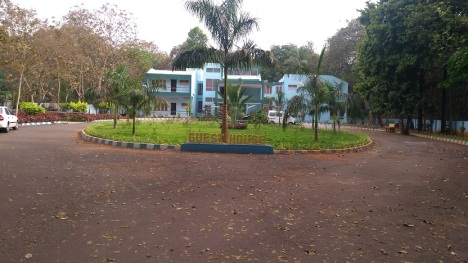
ANU – old guest house, last time, I stayed here
About the Ambedkar Study Centre – Chair: Dr. B.R. Ambedkar Chair was established in 1993, supported by Dr. Ambedkar Foundation, New Delhi, Govt. of India, Ministry of Social Justice and Empowerment Dr. B.R. Ambedkar who is hailed as the father of constitution, played an important role in the constitutional Development and emancipation of the deprived classes. The objectives of the chair include to study, to propagate the philosophy of Dr. Ambedkar among the society, to encourage students of M.Phil and Ph.D. courses and other scholars to work on Dr. Ambedkar and Dalit literature, to organize seminars, symposia, lectures on Dr. Ambedkar’s life, work and ideology and to provide a common platform to the scholars working on Dr. Ambedkar’s thoughts in India and abroad to share their views and experiences. Registration, Boarding and Lodging Delegates, who want to participate, can register by email giving details of their name, address, Mobile number, travel plan to e-mail: ambedkarchairanu@gmail.com. All out station participants will be provided, free accommodation, in the University Guest house/hostels. Local hospitality will be Extended to all the participants during the days of the Seminar.
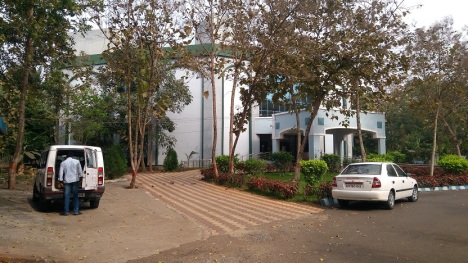
ANU – New guest house
About the Seminar on Ambedkar Philosophy: Babasaheb Dr. B.R.Ambedkar, the chief architect of Indian Constitution and versatile genius, had striven his best for making of modern India. His ideas on making modern India are highly influential and remarkable. One can identify the impact of Ambedkar’s philosophy in the spheres of Indian polity and administration, judiciary, economy, gender policy, literature and so on. His non-Brahmanical theory brought awakening among the people of downtrodden sections of the society. He is the critique of all aspects of Brahmanical order. Dr.Ambedkar challenged all sorts of discrimination and bias and proposed the theory of democracy in all sorts of Indian society. In fact he a Jurist, Constitutional expert, Economist, Sociologist and a literary scholar in his essence. He has produced a vast amount of literature, wherein he has analysed different systems and framed an alternative methods. In fact he is a literary critique, carried out an in depth study on Hindu Mythological literature, composed in Sanskrit literature. He himself is scholar of Pali literature. His social philosophy highly influenced the literary scholars. The impact of Dr. Ambedkar on novelists, story writers, play wrights, lyricists, and poets of modern bperiod can be seen since four decades in different Indian languages. When the Dalit self identity struggle initiated during the decade of 1980 in Andhra Pradesh, anabundant literature was produced by the writers, based on the anti-caste methodology of Dr. Ambedkar. He has become a driving force in the activism and creation of protest literature by the writers from Dalit and other downtrodden sections of the society. The present National Seminar on ‘Impact of Dr. B. R. Ambedkar’s Philosophy on Indian Literature’ aims at focussing on the analysing the influence of Ambedkar’s thought on Indian Literature & Telugu literature in general and protest literature in particular.
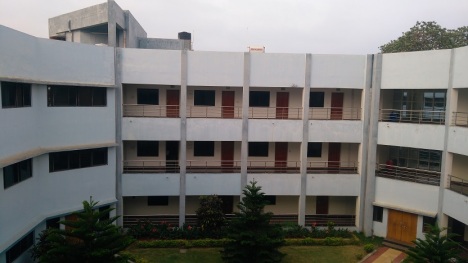
ANU – old guest house.view inside
Sub-themes of the Seminar: As usual, the sub-themes are also mentioned as follows:
| 1. Ambedkar as a philosopher
2. Ambedkar’s ideas on literature 3. Ambedkar and Dalit Literature 4. Ambedkar and Early Phase of Dalit Protest Literature 5. Ambedkar and Protest Literature since 1980’s |
6. Dalit Poetry & Song
7. Dalit Story 8. Dalit Novel 9. Dalit Short Story 10. Dalit Auto-biography 11. Dalit Journalism 12. Individual Writers 13. Literary Criticism |
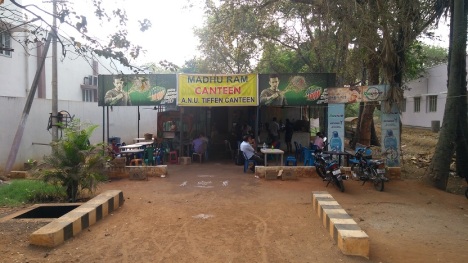
ANU – canteen where coffee taken
Call for Papers: Papers with research and scholastic outlook are invited from scholars who desire to present their views, ideas, paradigms and visions on the them with references. The papers (soft and hard copies) are to be sent to the Director of the Seminar. The papers will be published in the form of an edited book, which are accepted by the editorial board. Guidelines for Contribution – The contributors are requested to follow the guidelines given below while sending their manuscript. Fonts: Arial, Times New Roman, Font Size: 12 pt, Margins: 2.6 cm, Abstract: 300 words, Full Length Paper: 5 pages, of A4 size. Soft copy of the Paper along with one hard copy, mentioning the name, surname, organization represented, address, telephone number, e-mail address of contributor(s), with references at the end of the text, should be sent to the Director of the Seminar.
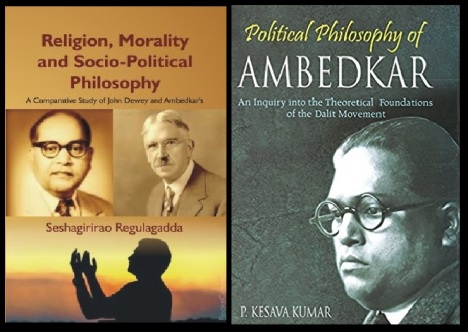
ANU – Philosopy of Ambedkar, interpreted differently by researchers
Registration: Those who are interested to participate in the seminar can register by mailing the following information. Name, Designation, Mailing address, Mobile number, e-mail, Abstract of the Paper and Journey details before 25th March 2018. Registration Fee Rs. 500/. Good Research Papers will be published in a book form with ISSN No. About the reimbursement of travel expenditure, nothing was mentioned. I reached Vijayawada by Pinakini Express on 27th night. As the train was late, I could reach 10.40 pm, the vehicle came there, dropped me at the Guest House of the ANU.
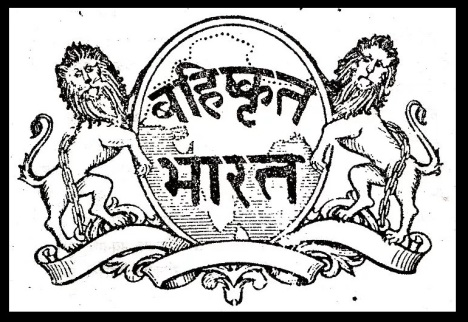
Bhahishkrut Bharath – one of the journals brought out by Ambedkar
What is Ambedkar’s philosophy?: A. M. Rajasekaraiah[3] pointed out, “Dr. Ambedkar was not a philosopher in the generally accepted sense. He did not develop a philosophy for its own sake. He was not a theoretician and theory-building was not his objective. As a researcher, thinker and writer he, no doubt, belonged to the realm of thought. He developed his ideas about man, society and their interrelationship. He was having all the ingredients of a thinker and a philosopher.” Philosophy of Ambedkar has been projected by the scholars as a complex in nature which was not the case, as Valerian Rodrigues noted[4]. Bringing down to Ambedkar for a single perspective could not be possible because he was read through Buddhism, Pragmatism, Marxism and Deweyian approach. Scholars like Pradeep Gokhale appropriated Amedkar’s political and philosophical dimensions with true sense of understanding. According to him Ambedkar ideas are Different in different dimensions not limited to single perspective; it is always multi character in nature. Ambedkar’s understanding of religion can be an example for his rational and scientific understands exceeding their limits. For the purpose of this, Ambedkar reformed Buddhism before he converted. He endorsed methodological anxiety – but sustained through universal standards. While doing so he could maintain statuesque as a rationalist – his apprehension for fundamental and universal principles. In democracy equality is the ultimate goal and Ambedkar influenced constitution making, incorporation of fundamental rights, directive principles of the State policy and reservations for SC/STs and such measures of equality and social justice in the constitution.
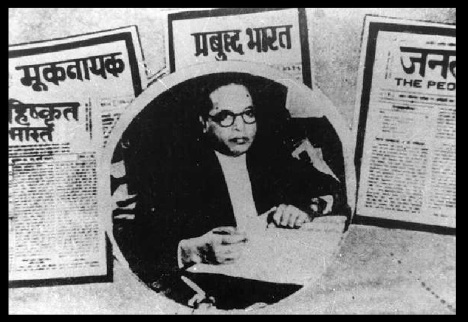
Ambedkar brought out several journals Mukhnayak, Bhahiskrut Bharat etc
Dalit literature and the impact of Ambedkar: Aboout the word “dalit” much is debated in the political and legal context, though, it is promonently and liberally used in literary and journalistic writings[5]. As literature flies with imagination, it is not controlled by any legal, judicial and constitutional restrictions and limits. The literary and journalistic juggernaut has succeeded and justified in establishing the usage of the expression “dalit.” The “depressed class”, “scheduled caste”, “Haijan” etc., have been replaced by “dalit” now. Though, it is not found in the Ambedkar’s writing, it is persistently claimed that he used. Anyway, the Constitution is his contribution. The National Commission for Scheduled Castes (NCSC) issued a circular in January 2008, directing the district collectors not to use the word “Dalit” as it is neither constitutional nor mentioned in the current laws. Rather ‘scheduled Caste’ is the appropriate and notified word as per the Article 341 of the Constitution, it said in a letter sent to all states[6].
© K. V. Ramakrishna Rao
31-03-2018
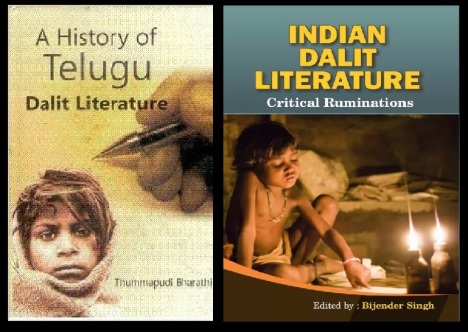
Philosopy of Ambedkar – dalit literature
[1] Dr. N. Ravi Kumar, General Secretary, Bahujana Rachayitala Vedika, A.P., Contact no: 9848187416
e.mail: rnukathoti@yahoo.in.
[2] Dr. Ambedkar Foundation was established by the Government of India under the aegis of the Ministry of Welfare (now Ministry of Social Justice and Empowerment) on March 24, 1992 as a registered society under the Societies Registration Act, 1860.http://ambedkarfoundation.nic.in/html/aboutus/aboutdaf16.pdf
[3] Rajasekhariah, A. M., and Hemalata Jayaraj. “Political Philosophy of Dr. BR Ambedkar.” The Indian Journal of Political Science 52.3 (1991): 357-375.
[4] Rodrigues, Valerian. “Ambedkar as a Political Philosopher.” Economic & Political Weekly 52.15 (2017): 101.
[5] Prasad, Amar Nath, and M. B. Gaijan, eds. Dalit literature: a critical exploration. Sarup & Sons, 2007.
[6] New Indian Express, Dalit word unconstitutional, says SC Commission, Jan 18, 2008, http://www.expressindia.com/latest-news/Dalit-word-unconstitutional-says-SC-Commission/262903/
Filed under: agony, ambedkar, andhra, anti-brahman, anti-brahmin, anti-hindu, anti-india, anti-indian, anti-vedic, colony, dalit, dalit buddhhist, dalit Buddhist, dalit christian, dalit hindu, dalit Jain, dalit literature, dalit muslim, Dravida, Dravidam, dravidar, Dravidi, Dravidian, gandhi, historicity, historiography, history, interpretation, justice, Kathi Padma Rao, katti padma rao, marxism, Nagarjuna University, nationalism, protest literature, Ramakrishna Rao, Rigveda, Sanskrit, sanskrit, scholar, tamil, tamilnadu, telengana, telugu, upanishads, Veda, Vedas | Tagged: ambedkar, ambedkar chair, ambedkar philosophy, ambedkarism, ambedkarite, anti-brahman, anti-brahmin, anti-hindu, anti-sanskrit, B.R.Ambedkar, blood, brahmanical, brahmanism, BSO, communism, dalit, dalit literature, dalitastan, ideology, impact, influence, literature, mahar, maoism, marxism, nagarjuna University | Leave a comment »

